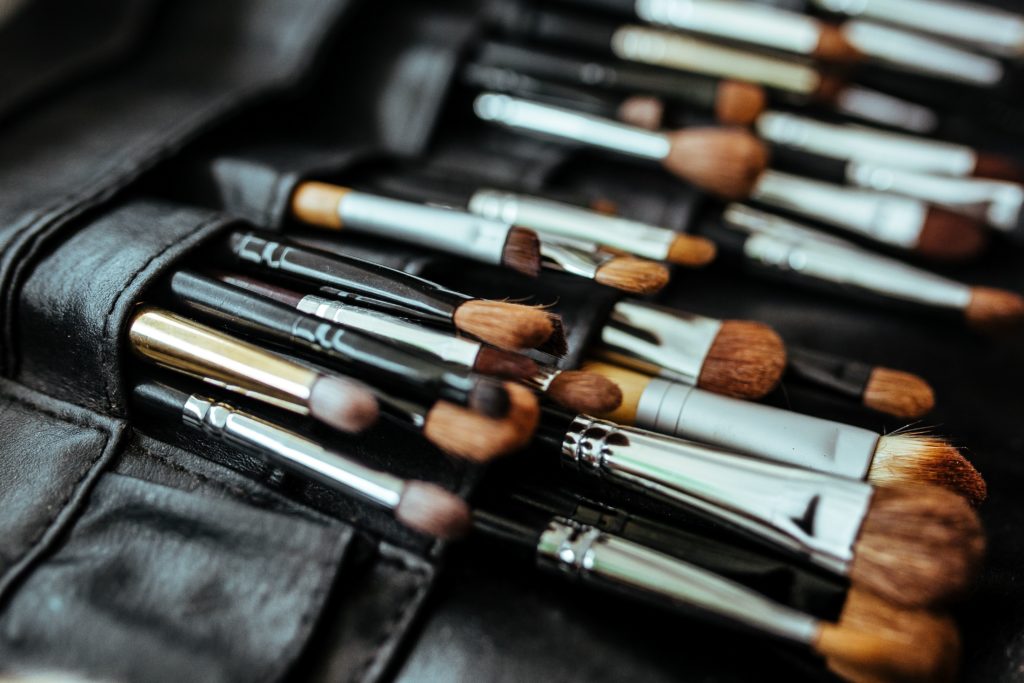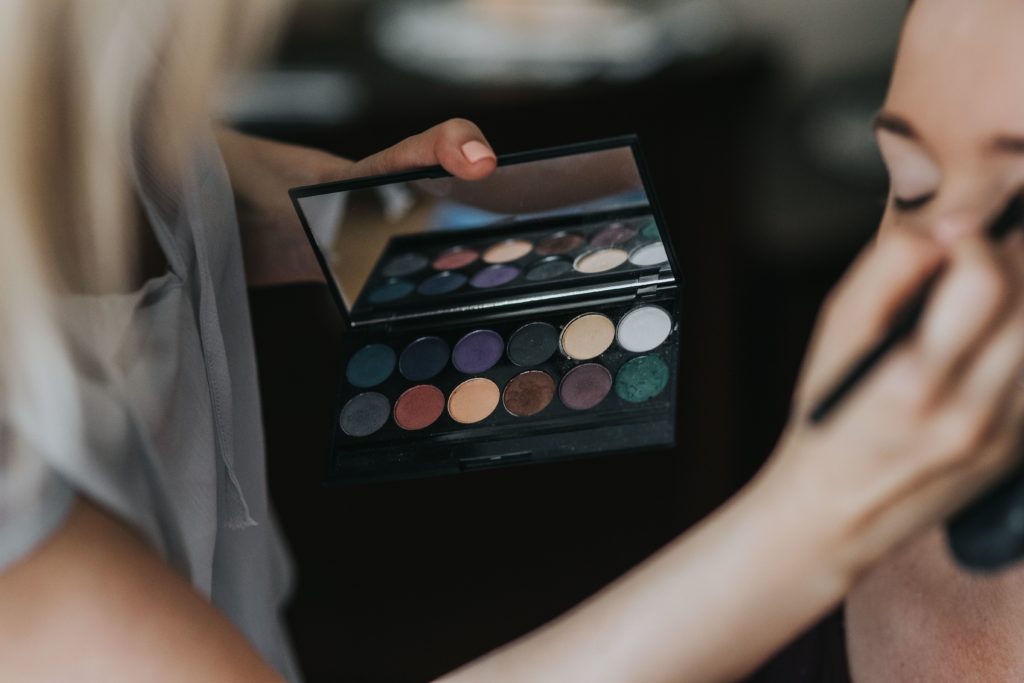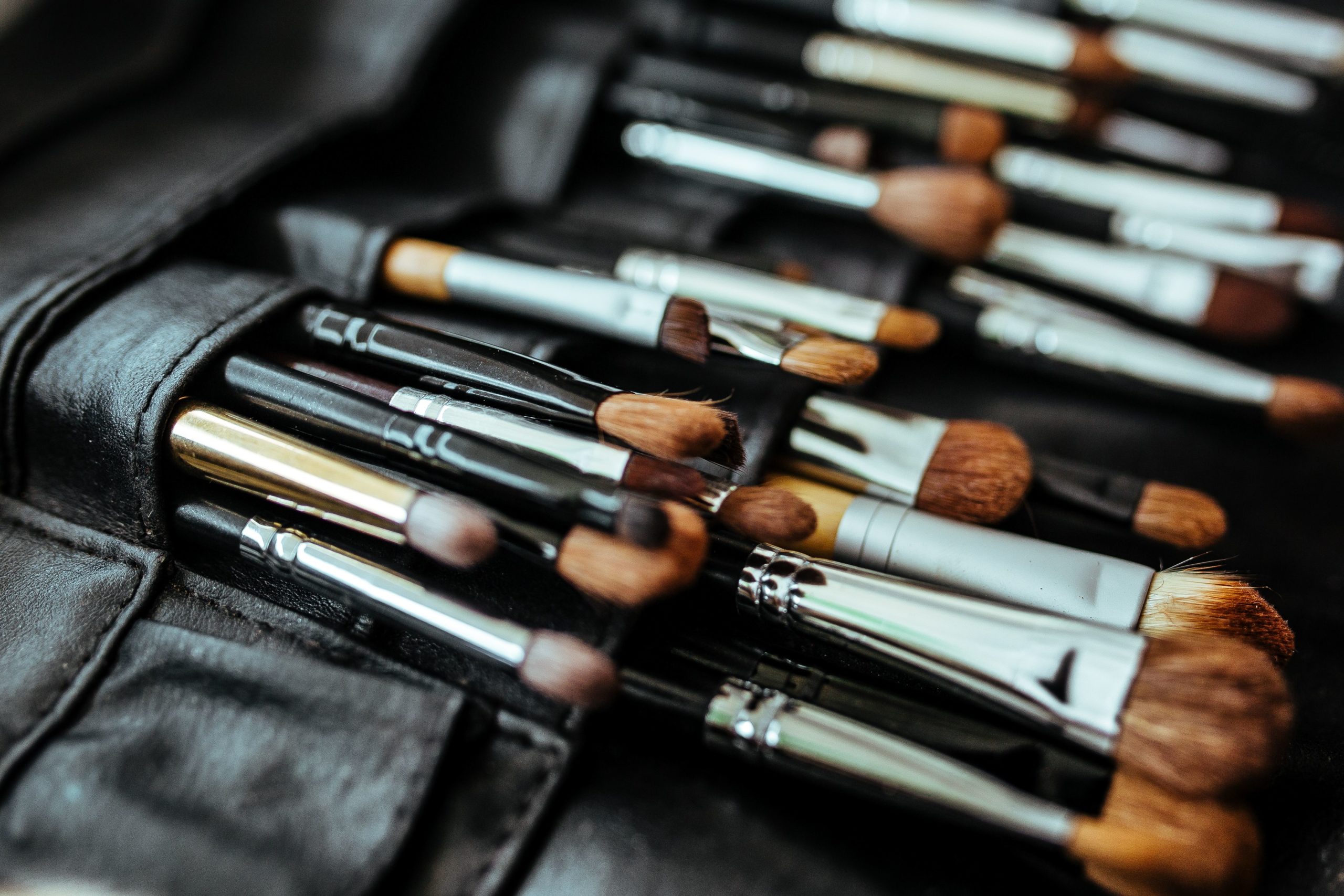This self-care Sunday, I want to focus on some dirty not-so-little secrets of the beauty industry that impacts all of our lives. I know that doesn’t sound uplifting, but sometimes it takes a little discomfort to be pushed to make a change. So, let’s dig into an important topic. We may be talking beauty, but the topic ain’t pretty…
The Ugly Truth about Beauty
It’s no secret that what’s considered beautiful in the mainstream is rooted in white, European beauty. From straight hair to light skin, white beauty standards have pervaded the beauty industry for women of all color. Because of this pressure, women of color are using tons of products to try and conform. And the group that uses the most beauty and personal care products? You guessed it, black women.
I know I’m not the only one who has ever fallen prey to a relaxer (though thankfully it’s been yeaaaarsss since I had one), or continuously put heat on my hair to make it straight so that I can “better manage” my mane. Or used products on my face that promised to help with the hyperpigmentation from the blemishes on my face, just to later realize they contain harmful chemicals like Hydroquinone. It’s almost feels like we can’t win! It’s sad because in a lot of our households, this type of behavior is all we know because our mom’s did it, and our grandmothers, and on down the line.
In addition to the traps we end up in within our own households, it’s not much easier to get decent beauty service out in the public as well. I’ve personally experienced how beauty industry professionals are oftentimes not equipped to work on black women. I’ve been on set for magazine spreads, photo shoots, commercials, day time tv shows, etc., and have had terrible experiences with being given glam squads that have been clueless on how to pull me together. For the sake of not looking foolish on national TV, bringing my own back up just in case I need to undo the damage, has been the only thing to save me! Unless I request to bring someone I know and trust on set, the hair stylist typically didn’t know how to handle black hair and my makeup is typically beyond rough. Wrong shade, wrong undertone. Just amateur. A moment of pampering for a photoshoot should have been fun… instead, it reminded me that, like in so many industries, for beauty professionals, women of color are an afterthought.
If you’re not a fair-skinned white girl, I know you can relate to how difficult it is to find a foundation shade that actually matches your skin tone. So many women I know have had to just take the darkest shades they could find and play at-home chemist to find something that kinda works.
Yes, advancements have definitely been made. Fenty’s 40 shades of foundation has been a huge success, especially as we see the darkest shades sold out the fastest. Other big names are following suit, too. But what about the women who can’t afford $34 foundation? Where are the darker shades in the drug stores? But I guess that’s a different problem for a different day…
Get this: I only just learned that there’s a face sunscreen that won’t leave me with a white residue and I’m dying to try it. (Psst! – It’s Black Girl Sunscreen and I’ll report back once I’ve used it a while!) If that doesn’t tell you how pervasive the problem of not marketing to black women is, I don’t know what will. I’m almost 30 and in order to have any legit SPF, I have a white tint on my face. What!?
All this goes to show that the beauty industry keeps pushing us to look more beautiful… according to what is beautiful about being white. And you wonder why black women use so many more beauty products…
But, It Gets Worse…
I promise, I’m not just complaining here. It’s also not a sales pitch – it’s my way of shouting to anyone who will listen about this huge problem that no one seems to know about or talk about! Brace yourself, girl. It’s about to get real. Real ugly.
All of these creams, lotions, makeup products and hair potions are literally poisoning us. When I learned just how toxic the products I was using were, I did two things. First, I basically pledged to dumped my entire cosmetic case into the trash (over time, of course, as products became empty), and trade them in for more conscious choices. The next thing I did was double down on researching products and get involved with Beautycounter.
Like I said, this isn’t a sales pitch. While I do wholeheartedly believe in the Beautycounter mission and am a proud ambassador, this goes beyond allegiance to any one brand. I’m not exaggerating when I say this should be considered an emergency by everyone. White, black, brown, old, young, and anywhere in between.
I was shocked and appalled to learn that there is essentially zero regulation of beauty and personal care products. I, like so many others, assumed that the FDA regulates makeup as much as they do our food. Or that the term organic on a beauty label actually means something. Nope. It doesn’t.
The laws governing our beauty products and their regulations are as old as my grandparents. The last law was passed in 1938. Yes, seriously. An 81-year-old law is regulating what’s allowed in our products. Back in the day they still thought mercury and lead were safe, and that’s what’s the standard for what we can put on our bodies?! I truly cannot wrap my brain around how this hasn’t been addressed and improved by 2019!
What’s In Your Cosmetic Case?

As women, we are willingly poisoning themselves. I mean, no, we’re not like “hey, let’s drink some cyanide” but we’re coating our faces and bodies in unregulated products filled with chemicals. Get this: the average white woman exposes herself to 168 personal care chemicals per day. Multiply that by seven days a week… yikes! And women of color? We’re using even more products that are often even more toxic.
I don’t know about you, but my world was basically turned upside down when I heard this. Obviously, I’m especially interested in how toxicity is impacting women of color, so let’s dive a little deeper here. To be honest, that was a main motivator in getting involved in Beautycounter. Learning that they’re also actually concerned about women of color, our well-being, and environmental toxicity… but more on that to come for Wellness Wednesday. ☺
It came as no surprise to me to find that research supports what we already know – we’re not just using these products because we’re vain. Marketing to women of color consistently depicts whiter as better, and women of color who look whiter – who have straightened hair or lighter skin – actually have better careers. They make more money and are more consistently given promotions. Yikes.
The craziest part is this – no matter what your income bracket, as a woman of color, you’re exposing yourself to the same level of beauty-related chemicals.
What!? Mind blowing, am I right?!
A Little Clean Beauty Education
So, you’re freaking out too… but what can you do about it?
- Read labels – the fewer ingredients in the product, the better
- Avoid the big two:
- Parabens – they interfere with the body’s hormonal processes because they mimic estrogen
- Phthalates – interfere with the body’s reproductive processes
- Steer clear of fragrances
- A range of problems are linked to added fragrances – brace yourself…
- Reproductive dysfunction
- Uterine polyps
- Cancer
- Don’t be fooled by “green washing”
- Words like “natural” and “organic” literally mean nothing in the beauty industry
- It’s not the same as food – the regulations just don’t exist, but that doesn’t stop companies from using the terms to sell their products
What Now?

We have to demand better. This starts with putting our commercial dollars behind companies that are doing better for us by making cleaner beauty, especially as they make it more affordable and accessible to all women—of all colors, all socioeconomic backgrounds.
In addition, we must educate our friends and family. If they’re anything like I was about a year ago, this will blow. their. mind. This is particularly important for women of color, since we’re slathering even more toxic lotions and makeup products all over ourselves than white women.
By 2021, black women will spend $2.25 billion on beauty products.
If we do this, if we put our collective dollars behind companies who are actually doing something to make sure we’re getting good products that match our skin tone and are clean products – we’ll be a force to be reckoned with.
So, on this self-care Sunday… I encourage you to take a look at your beauty products, and consider what they’re doing for you or to you. Take care of yourself, mama, by educating yourself and making better safer beauty choices – and by doing so, we’ll force the industry to take a look at what it’s doing to us and how it can do better.
Stay tuned for a follow-up Wellness Wednesday post this week. I can’t wait to hear your thoughts and reactions in the comments!
